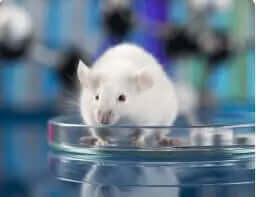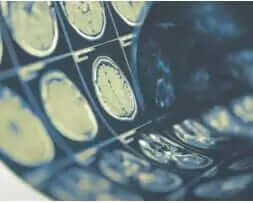Resveratrol and NAD: The Science Behind Sirtuins and Cellular Rejuvenation
When scientists first discovered in 1997 that resveratrol could reduce cancer initiation and progression in laboratory studies, few could have predicted this natural compound would revolutionize our understanding of aging and cellular health. Today, resveratrol stands as one of the most researched anti-aging compounds, with groundbreaking studies revealing its remarkable ability to activate sirtuins and enhance NAD+ levels for cellular rejuvenation.
The journey from cancer research to longevity science has unveiled extraordinary possibilities for human health optimization. What began as investigations into resveratrol's protective effects has evolved into comprehensive research demonstrating how this powerful polyphenol can transform cellular function, repair mitochondrial damage, and potentially slow the aging process itself.
The Revolutionary Discovery: How Resveratrol Transforms Cellular Health
The initial breakthrough came when researchers observed that resveratrol significantly improved fitness across diverse animal populations while potentially extending lifespan. While debates continue about resveratrol's direct impact on longevity, the overwhelming evidence supports its profound health benefits, particularly in reducing cardiovascular disease and cancer risk.
What makes resveratrol truly exceptional is its multi-faceted approach to health optimization. Unlike compounds that target single pathways, resveratrol influences numerous biological processes simultaneously, creating a comprehensive defense system against age-related decline. This broad-spectrum effectiveness has captured the attention of researchers worldwide, leading to thousands of studies exploring its therapeutic potential.
Understanding Resveratrol's Mechanism: The Sirtuin Connection
The breakthrough in understanding resveratrol's mechanism came approximately a decade ago when scientists identified its interaction with sirtuins, a family of proteins now recognized as master regulators of cellular health. This discovery transformed our comprehension of how natural compounds can influence fundamental aging processes.
Sirtuins, often called "longevity proteins," orchestrate critical cellular functions including DNA repair, mitochondrial biogenesis, and metabolic regulation. When activated by resveratrol, these proteins initiate cascading effects that enhance cellular resilience and promote optimal function throughout the body.
NAD, Resveratrol, and the Mitochondrial Revolution
Recent Harvard research has unveiled perhaps the most exciting aspect of resveratrol's action: its ability to rejuvenate muscle tissue through mitochondrial repair. In groundbreaking studies, researchers demonstrated that sirtuin 1 activation could restore aged muscle tissue to youthful appearance and function in just one week, equivalent to reversing decades of aging.
This remarkable transformation occurs through resveratrol's enhancement of NAD+ levels, the crucial coenzyme that powers sirtuin activity. As we age, NAD+ levels naturally decline, leading to reduced sirtuin function and accumulated cellular damage. Resveratrol helps restore this critical balance, supporting the cellular energy systems that maintain youthful vitality.
The Mitochondrial-Aging Connection
Mitochondrial dysfunction has long been recognized as a hallmark of aging, but recent research has clarified both the mechanism and severity of this decline. In aging tissues, mitochondria express reduced levels of essential proteins, compromising their ability to generate cellular energy efficiently.
The Harvard research team demonstrated that these age-related changes could be regulated by sirtuin 1 activation. By stimulating sirtuin activity through NAD+ enhancement, they successfully restored mitochondrial function to youthful levels, proving that cellular aging could be not just slowed but potentially reversed.
Revolutionary Results: From Laboratory to Real-World Applications
The experimental protocol involved injecting mice with NMN (nicotinamide mononucleotide), a direct NAD+ precursor. While the dosages used (equivalent to 1.5 oz twice daily for a 185-pound human) aren't practically achievable through supplementation alone, the results validate the therapeutic potential of NAD+ enhancement strategies.
These findings have inspired researchers to develop more efficient methods of activating sirtuins and enhancing NAD+ levels. Until such breakthroughs emerge, resveratrol remains the most accessible and well-researched natural sirtuin activator available.
Optimizing Resveratrol Benefits: Dosage, Bioavailability, and Synergistic Effects
Understanding how to maximize resveratrol's benefits requires knowledge of its bioavailability challenges and optimal dosing strategies. Research indicates that resveratrol absorption can be enhanced through specific formulation approaches and timing considerations.
High-quality resveratrol supplements, such as those providing 500mg of 99% pure trans-resveratrol, offer the most reliable way to achieve therapeutic blood levels. Clinical studies have consistently used doses in this range to demonstrate significant health benefits.
Synergistic Compounds for Enhanced Effect
While resveratrol provides remarkable benefits independently, combining it with complementary compounds can amplify its effects. NAD+ precursors, quercetin, and pterostilbene work synergistically with resveratrol to enhance sirtuin activation and cellular protection.
These combinations create a comprehensive approach to cellular health optimization, addressing multiple pathways simultaneously for maximum therapeutic impact. This strategy mirrors the natural complexity of biological systems, where multiple compounds work together to maintain optimal function.
Clinical Evidence and Real-World Applications
Human clinical trials have validated many of resveratrol's benefits observed in laboratory studies. Research participants have shown improvements in cardiovascular markers, cognitive function, and metabolic health when supplementing with high-quality resveratrol preparations.
These studies demonstrate that resveratrol's anti-aging effects translate meaningfully to human health, offering practical benefits for individuals seeking to optimize their wellness and longevity. The consistency of results across diverse populations strengthens confidence in resveratrol's therapeutic potential.
Cardiovascular Health and Beyond
Resveratrol's cardiovascular benefits include improved endothelial function, reduced inflammation, and enhanced blood flow. These effects contribute to better heart health and may help explain the "French Paradox," where moderate wine consumption correlates with reduced cardiovascular disease despite high dietary fat intake.
Beyond cardiovascular health, resveratrol shows promise for cognitive protection, metabolic optimization, and immune system support. This broad spectrum of benefits reflects its fundamental impact on cellular health and aging processes.
The Future of Resveratrol Research
Ongoing research continues to unveil new aspects of resveratrol's therapeutic potential. Scientists are exploring its applications in neurodegenerative diseases, metabolic disorders, and cancer prevention, with promising preliminary results across multiple areas.
Emerging technologies for enhancing resveratrol bioavailability and developing novel delivery systems promise to unlock even greater therapeutic potential. These advances may soon make the remarkable rejuvenation effects observed in laboratory studies more accessible for human applications.
Personalized Approaches to Resveratrol Supplementation
Future developments in nutrigenomics may enable personalized resveratrol protocols based on individual genetic profiles and health status. This precision approach could optimize benefits while minimizing any potential adverse effects.
As our understanding of resveratrol's mechanisms deepens, we can expect more targeted applications and combination therapies that maximize its anti-aging potential while addressing specific health concerns.
Frequently Asked Questions About Resveratrol
What is resveratrol and how does it work?
Resveratrol is a natural polyphenol compound found in grapes, berries, and other plants that activates sirtuins, proteins that regulate cellular health and aging. It enhances NAD+ levels, supporting mitochondrial function and cellular rejuvenation through multiple pathways. This multi-target approach makes resveratrol uniquely effective for promoting healthy aging and optimal cellular function.
How does resveratrol affect sirtuins and NAD+?
Resveratrol activates sirtuin proteins by enhancing NAD+ availability and directly stimulating sirtuin activity. This activation triggers cellular repair mechanisms, improves mitochondrial function, and supports healthy aging processes throughout the body. The synergy between resveratrol and NAD+ creates a powerful foundation for cellular rejuvenation.
What are the proven health benefits of resveratrol?
Research demonstrates resveratrol's benefits for cardiovascular health, cancer prevention, cognitive function, and metabolic optimization. It supports cellular rejuvenation, reduces inflammation, and may help slow aging processes. Clinical studies consistently show improvements in endothelial function, antioxidant capacity, and overall wellness markers.
What is the optimal dosage for resveratrol supplementation?
Clinical studies typically use 500mg of high-purity trans-resveratrol daily. This dosage has shown consistent benefits in human trials for cardiovascular health and cellular protection. Higher purities ensure maximum bioavailability and therapeutic effect while minimizing inactive compounds.
How can I improve resveratrol bioavailability?
Bioavailability can be enhanced by taking resveratrol with healthy fats, choosing high-purity formulations, and combining with synergistic compounds like quercetin or NAD+ precursors. Timing and formulation quality significantly impact how effectively your body can utilize resveratrol's benefits.
Can resveratrol reverse aging at the cellular level?
Laboratory studies show resveratrol can rejuvenate aged muscle tissue and restore mitochondrial function to youthful levels through sirtuin activation and NAD+ enhancement. While human studies are ongoing, the cellular mechanisms suggest similar rejuvenation potential exists for human applications.
Is resveratrol safe for long-term use?
Resveratrol has an excellent safety profile with decades of research supporting its long-term use. High-quality supplements at recommended dosages are well-tolerated by most individuals. The compound's natural origin and extensive clinical testing provide confidence in its safety for extended supplementation.
How does resveratrol compare to NMN for NAD+ support?
While NMN directly increases NAD+ levels, resveratrol activates sirtuins and supports NAD+ function through multiple pathways. They work synergistically when combined for comprehensive cellular support. This combination approach may provide superior benefits compared to either compound alone.
Choosing the Right Resveratrol Supplement
The quality and purity of resveratrol supplements varies significantly among manufacturers. Premium resveratrol capsules that have been tested in human studies provide the most reliable results and therapeutic benefits.
When selecting a resveratrol supplement, prioritize products offering 99% pure trans-resveratrol at clinically-studied dosages. This ensures you receive the maximum benefit from this remarkable compound while supporting your journey toward optimal health and longevity.
The future of healthy aging lies in understanding and harnessing compounds like resveratrol that work with our natural cellular systems to promote vitality and wellness. As research continues to unveil new benefits and applications, resveratrol remains at the forefront of anti-aging science, offering hope and tangible benefits for those seeking to optimize their health span and quality of life.
References:
- https://www.spandidos-publications.com/10.3892/br.2016.777
- Science, 1997, v.275 p.218 - Initial resveratrol cancer research
- Cell, 2013, v.155 p.1624 - Harvard sirtuin rejuvenation study







